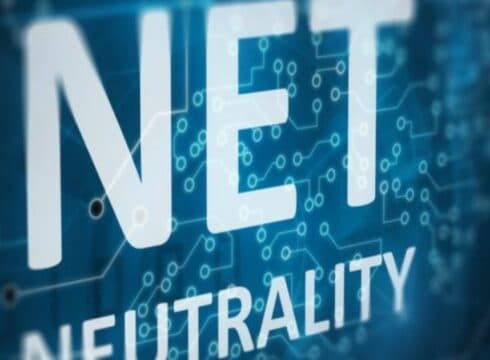Study claims banks choose to issue Visa and MasterCard more than RuPay cards because they lose money on transactions
The study revealed that only 65 lakh debit cards have been issued in August 2020, compared to 4.6 Cr cards in the corresponding period of 2019
The study suggested an MDR cap of 0.6% for all ecommerce payments
Inc42 Daily Brief
Stay Ahead With Daily News & Analysis on India’s Tech & Startup Economy
The Telecom Regulatory Authority of India (TRAI) on Tuesday (September 22) recommended to set up a multi-stakeholder body (MSB) to ensure that internet service providers in India follow the principles of net neutrality.
The MSB will be set up as an advisory body which would have representatives and stakeholders from all telecom and internet service providers, content providers, researchers from the academic and technical community, as well as the government but Department of Telecommunications (DoT) will still have the authority to punish net neutrality violations, the regulator suggested.
It will be mandatory for the telecom companies to inform DoT as well as the multi-stakeholder body about the traffic management practices (TMPs) adopted by them to manage their networks and only after approval, the TMPs can be deployed. Also, the companies will be further asked to submit a technical description and how it will impact different services of users.
TMPs are basically techniques that internet providers use to manage how their bandwidth is used.
In August 2018, the department of telecommunications (DoT) had accepted TRAI’s November 2017 net neutrality recommendations. DoT had asked TRAI to recommend the composition, functions, role and responsibilities of the multi-stakeholder body. It had also asked the regulatory body to recommend necessary traffic management practices for consideration of the DoT.
In its recommendations on net neutrality issued in November 2017, TRAI had proposed that in addition to direct monitoring and enforcement actions, there should be a “collaborative mechanism to deepen the knowledge of various stakeholders on issues relating to traffic management, implementation of exceptions, implementation of transparency measures, and other relevant aspects.”
Net Neutrality’s Importance
Net Neutrality can be basically defined as to how a mobile company should not decide who we can call and not call, similarly, an internet service provider should not be able to meddle with the sites we can access or not access. It’s the idea of considering all bits of data are equal and thus ISPs should not have the power to discriminate against certain companies or content or users.
With the launch of Facebook Basics platform, Net Neutrality had instigated a nationwide campaign across India whose supporters had argued that Facebook’s service violated the principles of free and open internet.
TRAI had then issued the ‘Prohibition of Discriminatory Tariffs for Data Services Regulations, 2016’ which said that no company can charge subscribers with discriminatory tariffs for data services on the basis of content.
As per the recent TRAI report, India has a total of 665.31 Mn internet subscribers, out of which, wired internet subscribers are 21.6 Mn and wireless internet subscribers are 643.6 Mn. Also, a 2019 Google report found that on average India adds 40 Mn internet users on a Y-o-Y basis, which is among the fastest in the world. “An Indian subscriber is using an average 8GB per month mobile data usage which has reached levels of developed markets,” the report added.
{{#name}}{{name}}{{/name}}{{^name}}-{{/name}}
{{#description}}{{description}}...{{/description}}{{^description}}-{{/description}}
Note: We at Inc42 take our ethics very seriously. More information about it can be found here.


